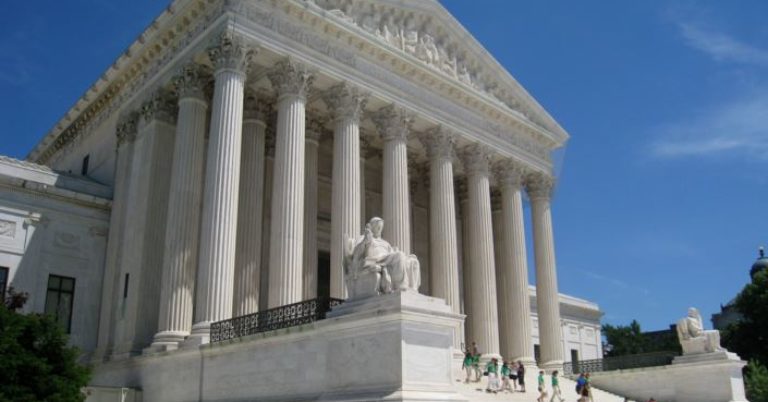
5 Things You Should Know About Janus v. AFSCME
On Monday, February 26, the United States Supreme Court will begin hearing oral arguments in a landmark worker freedom case, Janus v. AFSCME.
This case will decide the constitutionality of current law in Illinois and 21 other states that forces government workers to pay union dues.
Here are five things you should know about this important case ahead of oral arguments:
Who Is Mark Janus of Janus v. AFSCME?
Mark Janus works as a child support specialist for the state of Illinois. He is challenging the American Federation of State, County, and Municipal Employees union, over the requirement that he pay the union or risk being fired.
Janus was never asked if he wanted to be represented by AFSCME when he began working for the Illinois Department of Healthcare and Family Services. Instead, union fees were automatically deducted from his paycheck.
Janus felt AFSCME did not represent his views, so he filed a lawsuit which is about to be reviewed by the Supreme Court.
What Is This Case About?
This case is about worker freedom. It challenges current law which forces government workers to pay union dues, infringing on their guaranteed First Amendment right to free speech and free association.
Are Mandatory Union Dues Political?
Union collective bargaining in government is inherently political. When a union bargains on policies like pension benefits and wages, it’s engaging in political speech since these issues directly impact public policy.
Since government employees’ salaries are funded by tax dollars, mandatory union dues constitute political speech. This forces workers to pay for political advocacy they may not agree with.
By forcing public employees to pay a union, current law in Illinois and 21 other non-right-to-work states infringes on workers’ First Amendment freedoms.
What Does This Have to Do with Right-To-Work?
Twenty-eight states have passed right-to-work laws, which protect employee freedom by prohibiting mandatory union dues. These laws also give union members the freedom to hold unions accountable.
Today, more than 90 percent of unionized workers have never voted for the union that represents them. Many workers that are forced to pay or be represented by a union feel like they have no voice.
There is a history of rampant corruption within unions, from political spending to union bosses using dues to line their own pockets, instead of supporting their members.
Why Is This Case Such a Big Deal?
No American should be forced to pay an outside organization as a condition of employment, and no one should be forced to pay for political speech they may not agree with.
There are more than 5 million government workers across 22 states who will be affected by the outcome of the court’s decision.
If Janus wins his case, worker freedom protections will extend beyond right-to-work states to include public employees nationwide.
Show that you support worker freedom today! Send a message now.


